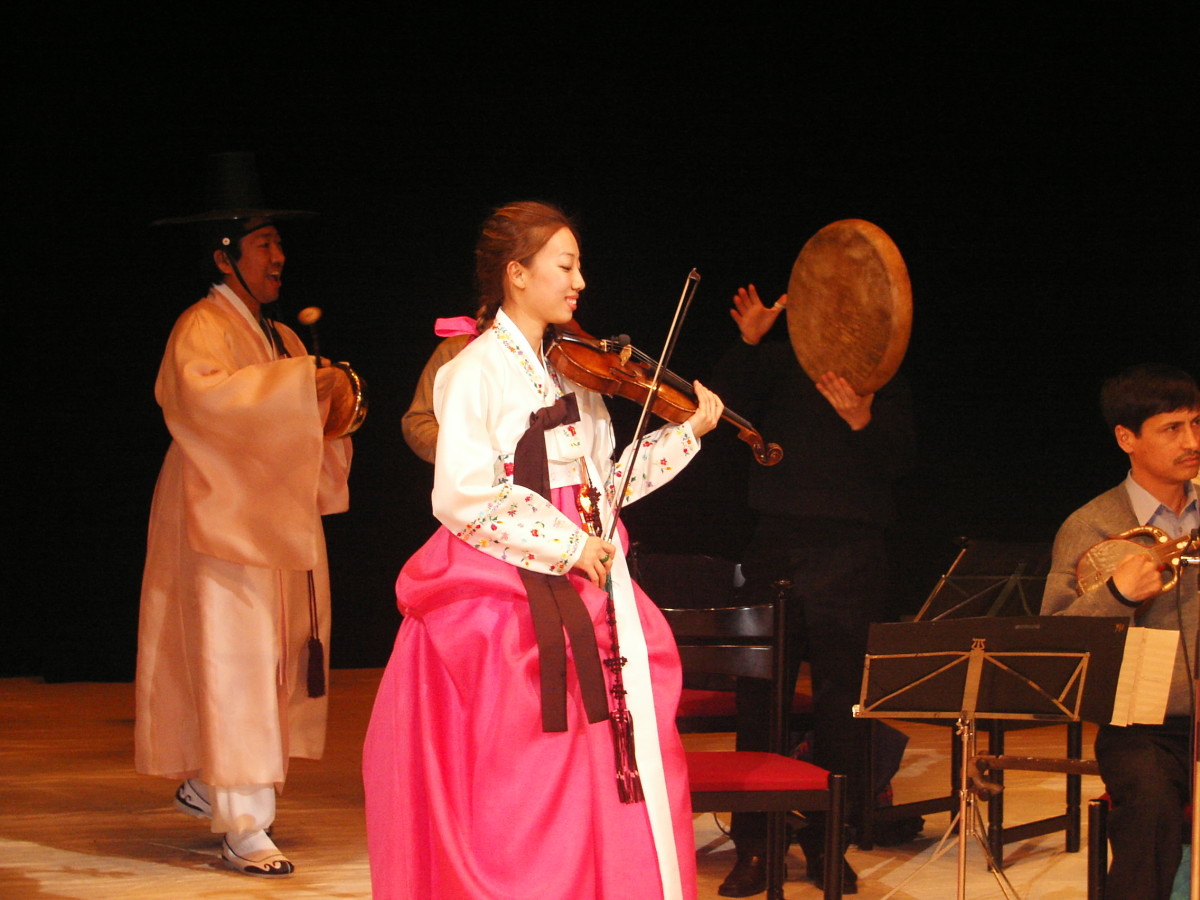“Silk Road was such a metaphysical term until I traveled through Mongolia, Kazakhstan, Kyrgyzstan, and Uzbekistan. It sounded far and magical, hard to grasp. Where people from Asia and Europe traveled and exchanged their cultures, I witnessed genuine interaction and creation of their encounters many, many centuries before me.
As a western instrumentalist, little did I know the violin and Asian cellos like the Erhu and Haegeum, had the same ancestor until I saw another violinist playing the instrument between legs like a cello. Among many familiar sounding yet exotic instruments, the most memorable was a Mongolian cello called Morin Khuur. It had a magical balance between the folk-like sounds that we hear in Asian cellos and the sensitivity we recognize in the violin or viola. A horse head scroll was attached to its trapezoid box…a captivating, odd beauty which fit perfectly with one of my favorite legends it’s inspired:
After a mother camel gave birth to her newborn, she was stressed and exhausted. She rejected the newborn and refused to feed the calf. To restore the harmony between the mother and her calf, a nomadic shepherd brought a Morin Khuur player to play the song of Hoos’ ritual. Shortly after, the mother camel started weeping and started to feed her baby.
The day of our collaborative concert was my birthday and all of my bandmates gathered to play the congratulatory music. Soon after, a Mongolian cellist shyly came towards us with his Morin Khuur to join the birthday jam session. Without a single word, I fully understood his genuine wish to celebrate my birthday. I too returned a silent thank you with a smile. It was from the instrument, the sound, and the gesture that I learned the beauty of Silk Road.”
– Sita Chay
086/100 of #100DaysofConfessions Instagram Project
